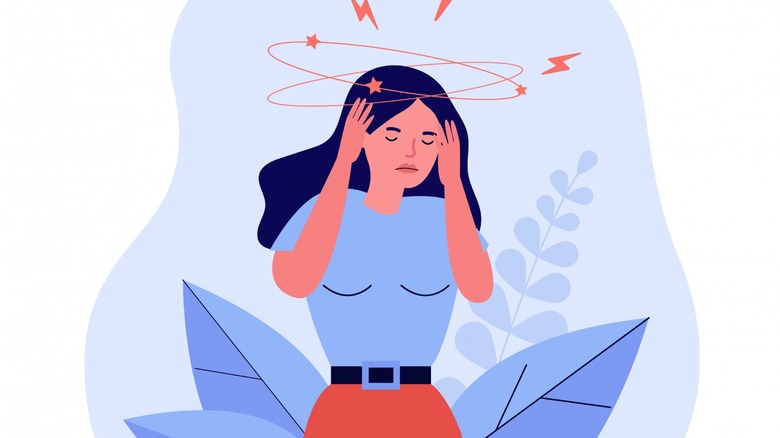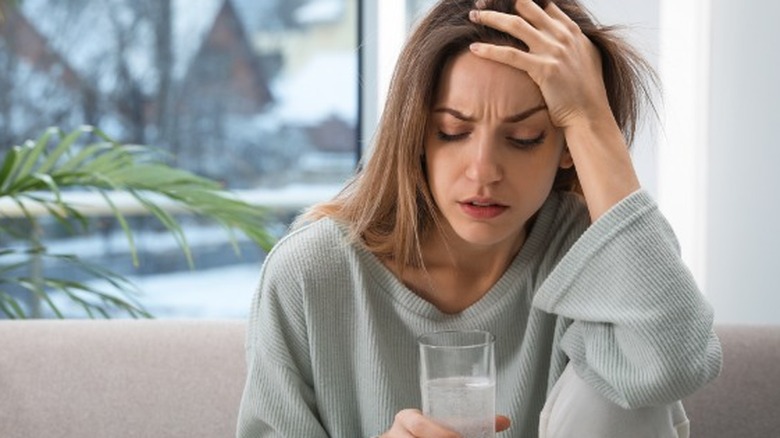Myths You Should Stop Believing About Hangover Cures
According to a recent Health Digest survey, fewer people drink alcohol every week than you might think. But new years often bring about celebrations and parties, which also means that you might have a drink for the special occasion. While ringing in the new year with a celebratory drink or two can feel like a cherished rite of passage, the new year bell might not be the only thing ringing when you wake up in the morning.
The National Institute on Alcohol Abuse and Alcoholism (NIAAA) notes that a hangover — which includes symptoms like aches and pains, anxiety, headache, sensitivity to light or sound, thirst, and tiredness — is a result of alcohol consumption. It can cause dehydration, inflammation, poor sleep, and mild withdrawal. Generally, these symptoms can last for up to a day.
Medical News Today notes that, on average, someone with a blood alcohol level of 0.08 would take around 5 and a half hours to process the alcohol and get it out of their body. So if you wake up with a hangover, you might wonder if there are any trusty tricks for speeding up that process and feeling better faster. Here's everything you need to know about popular hangover cures to determine what's fact and what's fiction.
Are these hangover cures fact or fiction?
There are mixed views on whether or not a hangover can be cured by a given remedy. For example, the National Institute on Alcohol Abuse and Alcoholism (NIAAA) says that the only cure for a hangover is time. The body needs to be able to metabolize the byproducts of alcohol, get enough water, and recover the brain. Not even coffee or electrolytes will help speed up this process. That's why the NIAAA recommends that avoiding alcohol entirely or drinking in moderation is the only way to avoid a hangover. But not all experts agree with the notion that hangover cures do not exist. For example, CNN reports that some health experts recommend small doses of coffee after a hangover — to help deal with caffeine withdrawal symptoms. This is in addition to consuming electrolytes, which can help with symptoms from a hangover like headaches.
However, there are some hangover myths that go undisputed. For example, the NIAAA states that the order that you consume alcoholic beverages does not affect the quality of a hangover. Another myth is that one more drink before bed or first thing when you wake up will improve the hangover. While another drink may temporarily assuage some symptoms, it could make them worse in the long run. Other myths include consuming a greasy meal or even taking acetaminophen before bed (via CNN). Finally, hangover pills lack evidence that they actually help cure a hangover.

